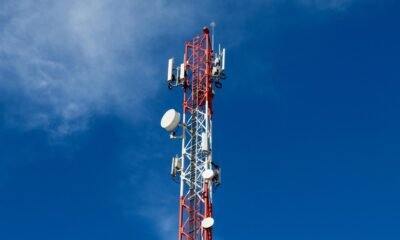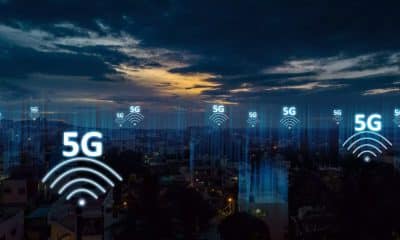Tech Plunge
6G Breakthrough: Would you like to downaload 20 movies per second?
Researchers Achieved 938 Gbps Speeds, 9000 Times Faster Than 5G University College London, led by Zhixin Liu. A major breakthrough in 6G technology.
The race to develop 6G data network technology has taken a giant leap forward with a groundbreaking achievement in wireless data transmission. Researchers from University College London, led by Zhixin Liu, have set a new record, reaching speeds of 938 gigabits per second (Gbps) in a recent test. To put this in perspective, this is over 9000 times faster than the average 5G connection and can download more than 20 movies in a single second. This remarkable feat is expected to form the foundation for the next generation of mobile communication technology.
Achieving Ultra-Fast 6G Transmission
The research team succeeded in transmitting data over a broad frequency spectrum, ranging from 5 to 150 gigahertz (GHz), combining radio waves and light in a unique approach. This test marks a significant departure from traditional 5G technology, which primarily relies on narrower frequency bands. By employing a method called orthogonal frequency-division multiplexing (OFDM), the team managed to maximize the use of available spectrum across different radio frequencies and millimeter-wave bands.
This technological leap is significant because it solves the long-standing challenge of synchronizing electronic and optoelectronic signals over such a wide range of frequencies. Liu’s team utilized high-speed electronics and microwave photonics to generate these signals, achieving the highest recorded transmission rate for multiplexed data. They created signals in the 5–75 GHz range with digital-to-analogue converters and extended this to higher frequency bands by using frequency-locked lasers on high-speed photodiodes.
Transforming Mobile Networks
This breakthrough, led by Zhixin Liu, has been likened to transforming a congested single-lane road into a 10-lane highway. Liu explained that just as wider roads can accommodate more traffic, broader frequency bands allow more data to be transmitted simultaneously, thus speeding up network performance. Once fully realised, the 6G data network could radically enhance how we experience the internet, making ultra-high-speed connections the new norm.
Although this 938 Gbps speed is the fastest yet recorded for multiplex data, individual signals have been known to exceed even one terabit per second in other experiments. This means that while 6G technology is still experimental, its potential is enormous and far surpasses current wireless capabilities.
The Road Ahead for 6G
As Liu’s team continues to refine their work, they are in discussions with smartphone manufacturers and network providers, hoping to lay the groundwork for commercial 6G technology. Meanwhile, other companies are also advancing in the race toward 6G. In Japan, a consortium of major firms, including DOCOMO, NEC, and Fujitsu, has developed a 6G device capable of transmitting data at 100 Gbps over distances of up to 100 meters.
The promise of 6G data network is not just faster speeds but also the ability to connect billions of devices, powering everything from autonomous vehicles to smart cities. While a full 6G mobile network rollout is likely still a few years away, these tests offer an exciting glimpse of the future of mobile communication, where downloading massive files or streaming 8K video will be instantaneous.








































